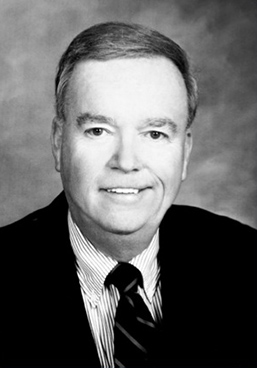
Medical advertising has evolved from the independent agencies of the ’50s and ’60s to the present era of corporate ownership. Most large agencies are now part of advertising/communications conglomerates like Omnicom, McCann, WPP, and Publicis. John Swift moved with the times, learning the business at the independent agencies—helping to found Lavey/Wolff/Swift—and then moving up in the holding company hierarchy to become one of the most successful managers of a healthcare agency network. His background, temperament, organizational talents, and business judgment equipped him ideally for this corporate role.
Swift served his apprenticeship at the Becker and Frohlich agencies and as a product manager at Chesebrough-Ponds. He was in a supervisory position at Frohlich when the agency broke up on Frohlich’s death and, together with Ken Lavey and Bruce Wolff, founded Lavey/Wolff/Swift.
At L/W/S, he showed his entrepreneurial spirit by extending the agency’s services into Canada and Mexico, as well as the discipline of public relations. When L/W/S was acquired by BBDO in 1977, John was well placed to become the supervisor for the company’s healthcare holdings that included the Corbett agency in Chicago. As head of BBDO’s Health and Medical Company (HMC), he expanded its range leading up to the merger of L/W/S with Dorritie Lyons & Nickel, now Lyons Lavey Nickel Swift. When he retired in 1994, the HMC group consisted of 13 medical operations with annual billings of $350 million. Foremost among John’s abilities to lead a diverse network of healthcare promotional companies was his business judgment.
Tom Watson, vice chairman, Omnicom Group, explains, “[describing Swift]…a good manager. His ability to make good decisions…unlike a lot of people who are good account guys or good functionally, John could do that but he had a business sense…he knew how to grow the top line and year [after] year he delivered.”
Frank Corbett, the agency founder, adds this about John’s scope as a leader: “John was not afraid to think big. And that’s why he accomplished so many big endeavors. He bought agencies. He shifted people around…very important to the growth of the overall agencies.”
Swift had another management quality that allowed him to deal with the pressure of the number of units reporting to him. Jack Fisher, former CEO of Corbett, says of John, “He was a good judge of ability in others and was strong on delegation. If he decided that you had the talent and what was needed to do the job, you were hired. He would give you all the resources that the agency had and then he would expect you to go and do the job. In other words, turn you loose…You had the opportunity to succeed.”
Those who worked with Swift also commented on his ability to deal with the constant crises of the agency world. He is often described as “unflappable.”
Fisher says, “He tended to be very even-keeled…when all around you was falling down. John was the calm in the storm. [His attitude was] it didn’t really matter, you come in and make it work.”
The paradox of John Swift was that he accomplished a great deal in a low-key, unobtrusive manner. Watson explains, “John would never be the front-room guy…never the one taking the bows. He’d rather stay in the background and give credit to those around him [but] John unmistakably was the driving force behind [the scene].”
Emphasis on Swift’s achievements as head of Omnicom’s HMC should not detract from his ability as an ad man. He was a star account person at Becker on Merck and a leading account supervisor at Frohlich on Squibb. His big personal successes were at L/W/S with the introduction of Tenormin for Stuart, and the landmark Burroughs Wellcome’s anti-AIDS drug, Retrovir.
However, it is his organizational ability in advertising and in volunteer work that stands out. His talent for bringing people together (fundamental to the collaborative nature of advertising) showed in his long-term commitment to, among others, the Catholic Church (board memberships and fundraising), the PAC (president and in organizational roles), Seton Hall (his alma mater), The Partnership for a Drug Free America (donation of L/W/S personnel to the program), PhRMA (design work and consultation), and most notably, the Coalition for Healthcare Communication.
Jack Angel, the executive director for the Coalition for Healthcare Communication, describes Swift’s role as the Coalition’s principal fundraiser and advisor: “In a volunteer group, your desires are far greater than what you can do. John was the one who said ‘You can do it but here’s what it’s going to mean.’ He was very candid and realistic on what the dreamers were trying to do…a great manager…cared a great deal…understands human interactions better than most people.”
Not to be overlooked in his continual involvement with the inner workings of organizations is Swift’s role as the creator of the New York Giant Kickoff Club—a group that meets weekly throughout the season.
Summing up, John Corbett says, “I found him a realist. He also has a spirit of ‘We can do it!’ It is an interesting blend and made him accomplish many things.”
Betty Kapalla, who worked closely with Swift for years, recalls, “In his office was a little sign and it read ‘Never Say Never.’ And he believed it…never give up. Believe in yourself and do what you think is right.”
In his retirement, John spends his time in New Jersey and Florida where he continues his involvement in volunteer work.